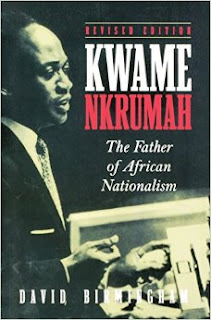If the divisive Presidential election stoked your curiosity of politics and history, you’re not alone. Readers United has founded a couple of our discussions consumed by questions and tangents about politics today. In a club that often reads fiction pieces, we thought it would be refreshing to also discuss nonfiction. Imad Rizvi ’18 is here to review couple of nonfiction books, sharing his nuanced and well-informed perspective on political and historical issues.
Black Flags: The Rise of ISIS by Joby Warrick
The Islamic State (ISIS) is a terrorist organization that has not only conquered large regions of land in Syria and Iraq, but has also spread its influence throughout the world. Combatting ISIS is one of the forefront US foreign policy goals because of the rapid rise of the organization and the threat it poses on global stability. To fight the expansion of such an extensive organization, the roots of its creation must be understood. In his Pulitzer Prize-winning novel Black Flags: The Rise of ISIS, Joby Warrick explains the series of events that led to the creation of the Islamic State.
The book starts by charting the rise to power of Abu Musab al-Zarqawi, the man known as the founder of ISIS. Warrick provides information about Zarqawi’s childhood and early adulthood, and he explains how for a long time Zarqawi was under the watchful eye of Jordanian intelligence agencies. While showing Zarqawi gain more power, Warrick begins to include information about the United States and its influence in creating instability in the Middle East. By discussing the various mistakes made by the United States in its invasion of Iraq, Warrick explains how a power vacuum ultimately allowed ISIS to be created from al-Qaeda in Iraq and seize power. Then, Warrick continues to look at US mistakes under both President Bush and Obama at combatting the Islamic State, and after Zarqawi’s death, shifts to a narrative of Abu Bakr al-Baghdadi—the current leader of ISIS.
This book is not only a thrilling read for anybody interested in Middle Eastern politics, but is also a phenomenal piece of investigative journalism. Warrick provides accounts from leaders on all sides including citizens who were in contact with Zarqawi, various former CIA operatives, other top US government officials, and members of intelligence agencies in Middle Eastern countries such as Jordan. The accounts from these sources create an engaging narrative of the events that led to the formation of ISIS, rather than a tedious historical summary. The book is full of action rather than just analysis, prompting the reader to keep on reading to find out further about the events that unfolded.
Another reason to read this novel is because of its unforgiving analysis that does not have a partisan bias. Warrick looks at both President Bush and Obama, analyzing their mistakes based on the information they were given and never generalizing their decisions based on which party they belonged to. It is rare to find analysis on such a polarizing foreign policy topic that doesn’t try to shift blame onto one political party. Joby Warrick also is unafraid to criticize American policy when outlining all the strategic blunders made in the region. By presenting information about the horrendous mistreatment at Abu Ghraib prison, the daily break-ins into innocent civilians’ homes, and the disbandment of the Baath party and military, Warrick seamlessly explains some of the forces that led to the radicalization of people who would eventually join ISIS. Warrick has the power to make readers begin questioning the decisions made by their government representatives and wondering whether ISIS would exist had different strategic decisions been made.
Overall, Joby Warrick creates an effective piece explaining the rise of the world’s most prominent terrorist organization. Black Flags: The Rise of ISIS is a thrilling novel that the reader will not want to put down.
Verdict: I would highly recommend this book to anybody interested in Middle Eastern politics or ISIS.
Kwame Nkrumah: The Father of African Nationalism, by David Birmingham
Kwame Nkrumah today is a symbol of African nationalism and unity, though his reputation at the end of his life was tarnished by controversial events that eventually led to his exile. David Birmingham provides an overview of different aspects of Nkrumah’s personality, the specifics of his policies, and descriptions of interactions he had with organizations like the World Bank and the Kaiser Company. Birmingham mentions the goals Nkrumah had of industrialization for Ghana and his hopes that foreign investment into the Volta River project would help spur on the Ghanaian economy.
Birmingham successfully provides the key events of Nkrumah’s presidency and eventual demise into exile. Through in-depth descriptions of different aspects of Nkrumah’s education and personality, Birmingham allows the reader to understand Nkrumah as a person, rather than as a distant historical figure.
Despite the extensive information provided, there are a few more resources that could have been included to give the reader a better understanding of the Ghanaian President. First, more primary sources form world leaders serving at the same time as Nkrumah might have provided insight into his reputation on the world stage. Additionally, perspectives from different Ghanaian citizens would have provided interesting insight into how Kwame Nkrumah was viewed by his people in his time, especially during his exile. Still, the book provides a great overview for anyone hoping to learn more background information about Nkrumah. Overall, the book provides a fascinating look into the life and rule of Kwame Nkrumah as the first president of Ghana.
Verdict: I would recommend this book to anybody interested in history who does not have prior knowledge on Nkrumah.



No comments:
Post a Comment